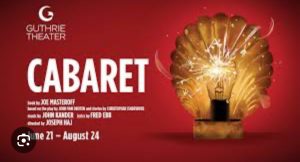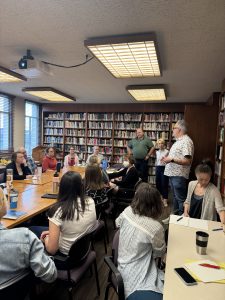Last summer, I spent two weeks working with the Herero community education group Hitambo Virtual Academy, to document oral histories of the 1904 Herero and Nama genocide and supporting teachers interested in genocide education. The trip served as the launching point of a multiyear project between our Center and partners in Namibia and Germany that will culminate in classroom resources for Namibian, German, and American teachers to better teach about the genocide.
For me, it was an opportunity to see firsthand how colonial violence is remembered in Namibia. This was not my first time learning about Germany’s colonial history. In 2022, I spent two weeks in Germany as part of a fellowship understanding cultures of remembrance in Germany and the United States. I reflected on that experience in an article I wrote when I returned, but my main takeaway was the difference in how Germany memorializes the Holocaust versus the violence committed in its colonial territories. In many ways, this mirrors American approaches to memorialization; often minimizing its own role in perpetuating settler violence, especially in recent years.


